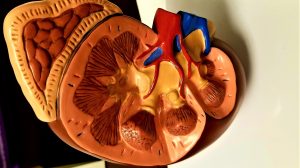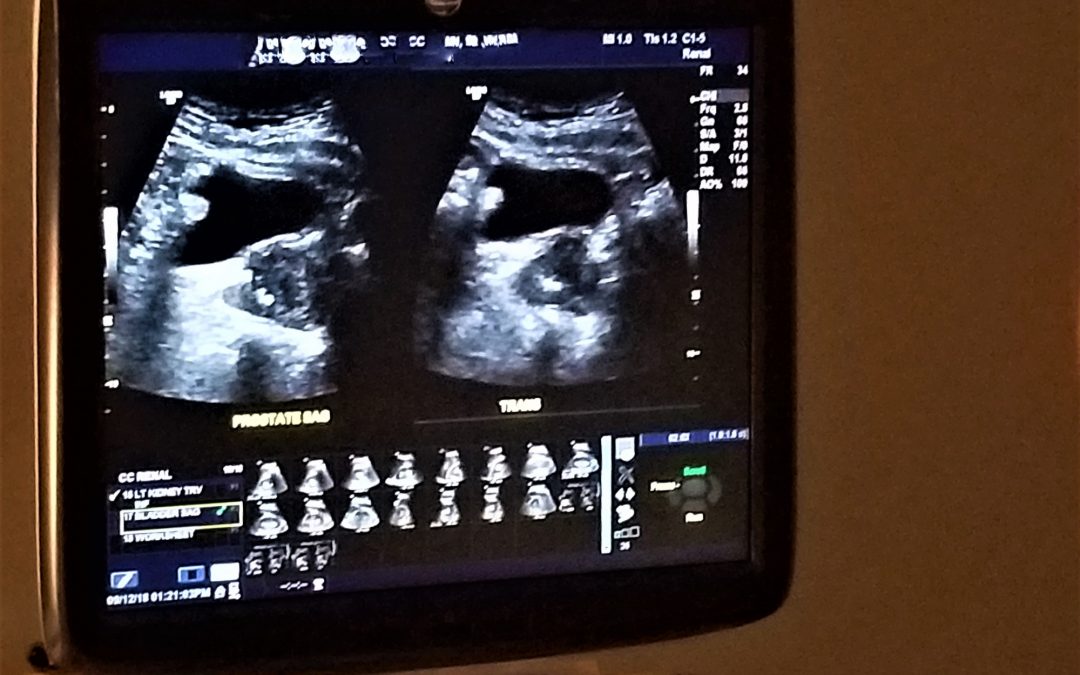It’s important to maintain healthy blood pressure and healthy kidneys – but how is kidney function related to blood pressure?
While some people prefer to compartmentalize their lives, the fact is there is a lot of overlap when it comes to health. Accordingly, there is a connection between healthy kidney function and blood pressure.
One of the main functions of the kidneys is filtering waste from blood, which uses a lot of blood vessels in the process. If there are damages to the blood vessels, the kidneys can’t get enough nutrients and oxygen to function effectively.
As a result, high blood pressure (hypertension) is one of the leading causes of kidney failure. If hypertension is out of control, it causes the arteries around the kidneys to weaken and restricts blood flow to the kidney tissue.
Long Term Damage
 Kidneys are a pair of organs on either side of the back and function as a filtering system that removes excess fluids and waste. Its nephrons (the microscopic structural and functional units of the kidney) use a dense network of blood vessels to function.
Kidneys are a pair of organs on either side of the back and function as a filtering system that removes excess fluids and waste. Its nephrons (the microscopic structural and functional units of the kidney) use a dense network of blood vessels to function.
Over time, high blood pressure can weaken, narrow, and harden the arteries around the kidneys. Because they are damaged, they can’t supply the necessary blood to the kidney tissue.
These damaged arteries affect the filtration process, incapacitating the kidneys’ abilities to filter blood and regulate fluids, hormones, acids, and salts. In turn, the kidneys experience damage, which affects their ability to regulate blood pressure.
The combination of high blood pressure and damaged kidneys results in a negative spiral that affects both areas. Once enough arteries are blocked to the point of malfunction, the kidneys start to fail.
Improving Kidney Health and Blood Pressure
While the news may sound negative, the bright side is that kidney failure due to hypertension can take years to develop. One of the best ways to decrease the risk is to manage your blood pressure properly.
The American Heart Association (AHA) provides various facts about hypertension that can help you get a handle on blood pressure. In the spirit of improving blood pressure and limiting the risk of kidney failure, the following are quick tips for managing hypertension.
Know Your Numbers
The only way you’ll know what your blood pressure readings are is by getting your blood pressure checked. Make it your goal to get your blood pressure measured at least once a year or buy yourself a home blood pressure monitor.
Anything more than 120/80 mm Hg indicates that you have high blood pressure and need to start treatment.
Make Lifestyle Changes
Improving blood pressure usually means it’s time to adopt healthy lifestyle habits like exercising regularly and eating healthy. The DASH diet is particularly effective at lowering blood pressure and so are aerobic exercises.
Moreover, you should limit (or discard) unhealthy habits like heavy drinking, smoking, and eating processed foods. You can also try heart health supplements like L-arginine Plus to your daily routine.
Its ingredients work together to increase nitric oxide production, which relaxes blood vessels and improves overall circulation. Try L-arginine Plus along with regular exercise and a healthy diet to give your blood pressure the boost it needs.

